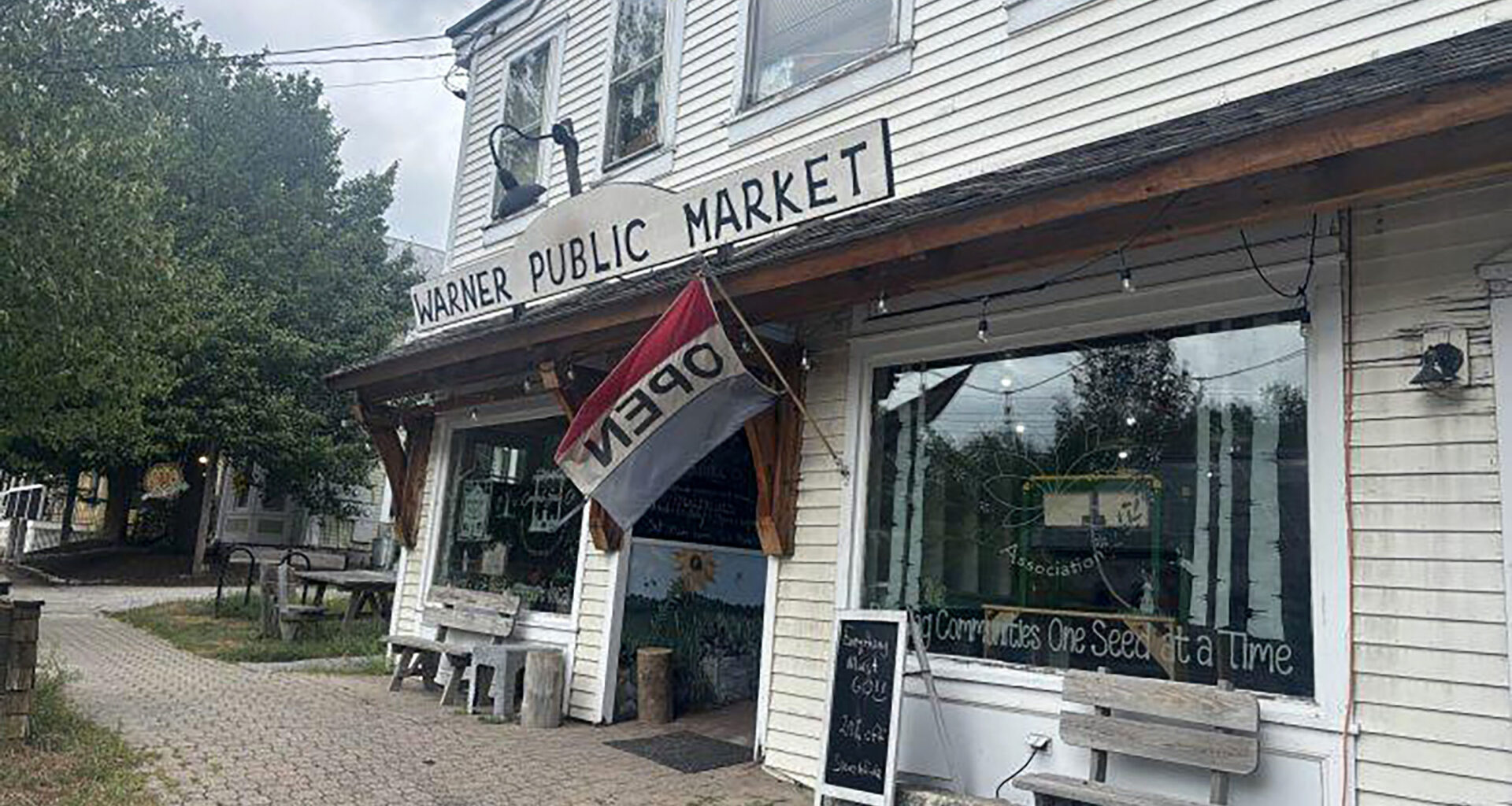Chris and Krystal Hudon were the prime candidates to take over Warner Public Market.
The market’s previous owners believed the couple had similar food values: They knew Chris and Krystal started Comfort Spice Company in Hopkinton, N.H., and that Chris founded a nonprofit focused on sustainable and alternative agriculture, the ReGenerative Roots Association.
The store opened in May of 2024 with Chris and Krystal at the helm, but in the year since then, keeping it open has proved to be an uphill battle.
On Aug. 31, Warner Public Market closed its doors.
“The people that come in have been fantastic, support from those has been fantastic,” Chris said. “It’s just not enough.”
Warner Public Market experienced fewer sales and diminished revenue in the lead-up to its closure. These challenges of the direct-to-consumer model have become a trend throughout New Hampshire, with an increasing number of community stores struggling to stay open.
The owners of Pasture2Plate, a farm store in Loudon, N.H., recently put the store up for sale citing time constraints and a lack of customers willing to pay a sustainable price.
The direct-to-consumer model not only requires store runners to make or grow their own products and handle business operations, like marketing and customer service, but it favors owners who carry a wider variety of products.
Chris and Krystal Hudon took over the lease of the small storefront along Main Street in March of 2024, just under two years after they moved from Nashua to Contoocook, N.H.
The version of the Warner Public Market that existed before the Hudons took over focused more on arts and apothecary products, but the couple dreamed of shifting toward food. Using the large industrial kitchen in the back of the store, local products and their own company’s spices, the couple began crafting meals ranging from beef tacos to Irish stew, lasagna and chicken curry.
“At first, people would come in and say, ‘We need to have this again.’ And then it turned into, ‘What are you making next week?’” Chris said. “It got the excitement and the creativity of all the different dishes that we did.”
The couple brought in other products — like lotions, candles, pasta, packaged snacks and condiments — from local farms and stores no more than 30 miles away. Even if the market couldn’t be a one-stop-shop for most people, Chris believed strongly in the benefits of shopping locally.
However, a noticeable decrease in foot traffic and a large difference between operating costs and revenues ultimately spelled the market’s end.
Chris said residents in town opt to go to Market Basket for their grocery shopping or to McDonald’s for something quick to eat. Even with tourist destinations spread across Warner, visitors rarely pass through the town, let alone shop in the local businesses, he said.
“Maybe at some point in the next few years, we’ll try it again in a different location,” Chris said.
The market has switched hands once before.
In 2019, Sam Bower and Sarah Hansen, who work alongside Bower’s parents at Kearsarge Gore Farm, started the Warner Public Market with three others. In the end, they felt their responsibilities, which included managing the farm, were not evenly distributed, especially after the couple’s baby, Rowan, was born.
“A lot of the time that we spent down there was donated time,” Bower said. “We would just go down there and do it on the weekends or whenever we could find time for it. After five years, I think that donated time had run out a little bit.”
The pair were not shocked about the Hudons’s decision to close.
Hansen said they noticed the market placed fewer and fewer orders from Kearsarge Gore Farm, and they heard that business was not performing as well this year.
“I was surprised that they had made that decision, but honestly, finding help is really hard,” Hansen said. “I know that was a struggle for them, trying to keep their business open while maintaining somebody at the front register.”
Some direct-to-consumer markets have found lasting success.
Kearsarge Food Hub, the nonprofit that runs Sweet Beet Market and Cafe in Bradford, N.H., started in 2015 as a meager food stand but has grown to source from over 250 vendors and offer food donation and education programs.
Hannah Flanders, the Hub’s co-founder and director of community engagement, said a lot of things contributed to the organization’s growth: The founders were passionate about bringing local food to the area and the business’s nonprofit status allowed for an outpouring of financial support from their community, which has “snowballed over the past 10 years quite tremendously.”
Flanders called Warner Public Market’s closure “a huge loss.”
“It’s a real shame for our local area,” she said. “Food businesses have slim and even decreasing margins across the board. They are all reliant on food sales, which is really challenging, and also reliant on labor.”
Kearsarge Gore Farm still owns the Warner Public Market building, and while they don’t anticipate it being another food market, Hansen said whatever it becomes next will be “really positive” for the community.
“I think that the next chapter of that space will be community-oriented and creative, and [led by] somebody who has a strong network built here,” she said. “An end of an era with Warner Public Market, but hopefully that space will be good.”
What to Read Next

